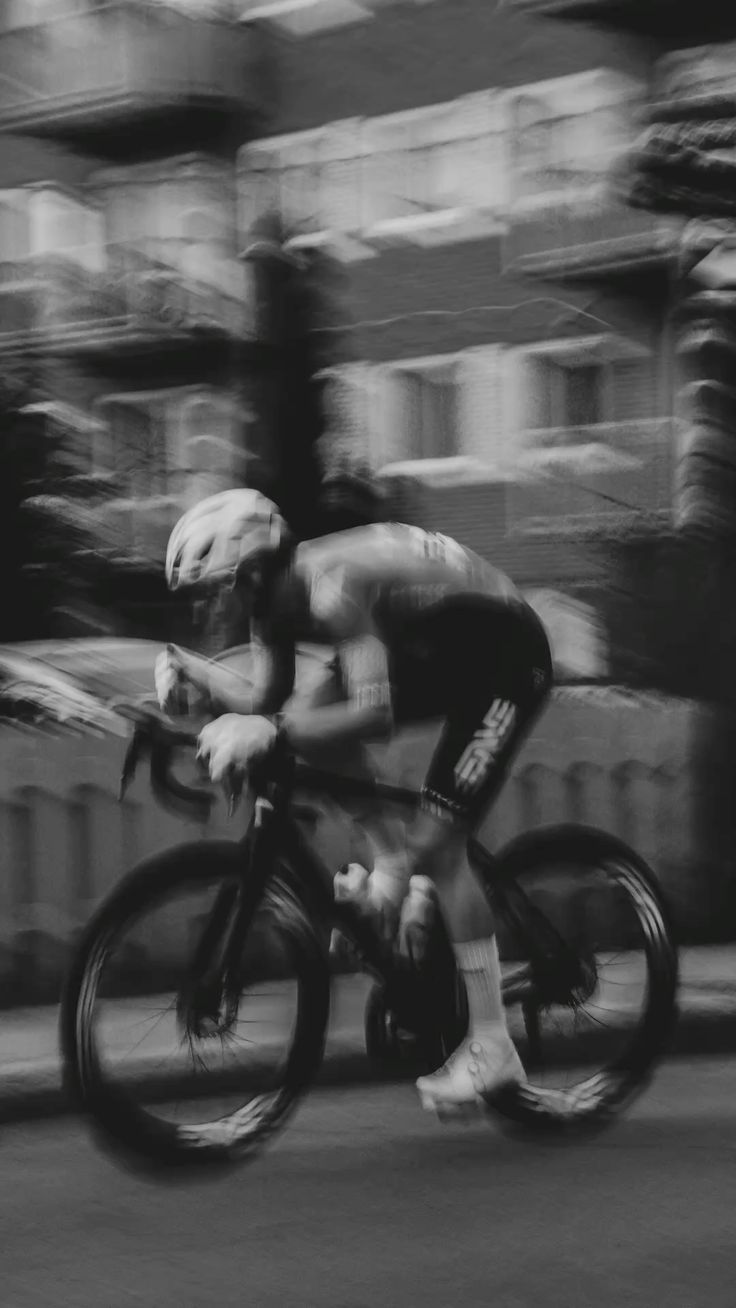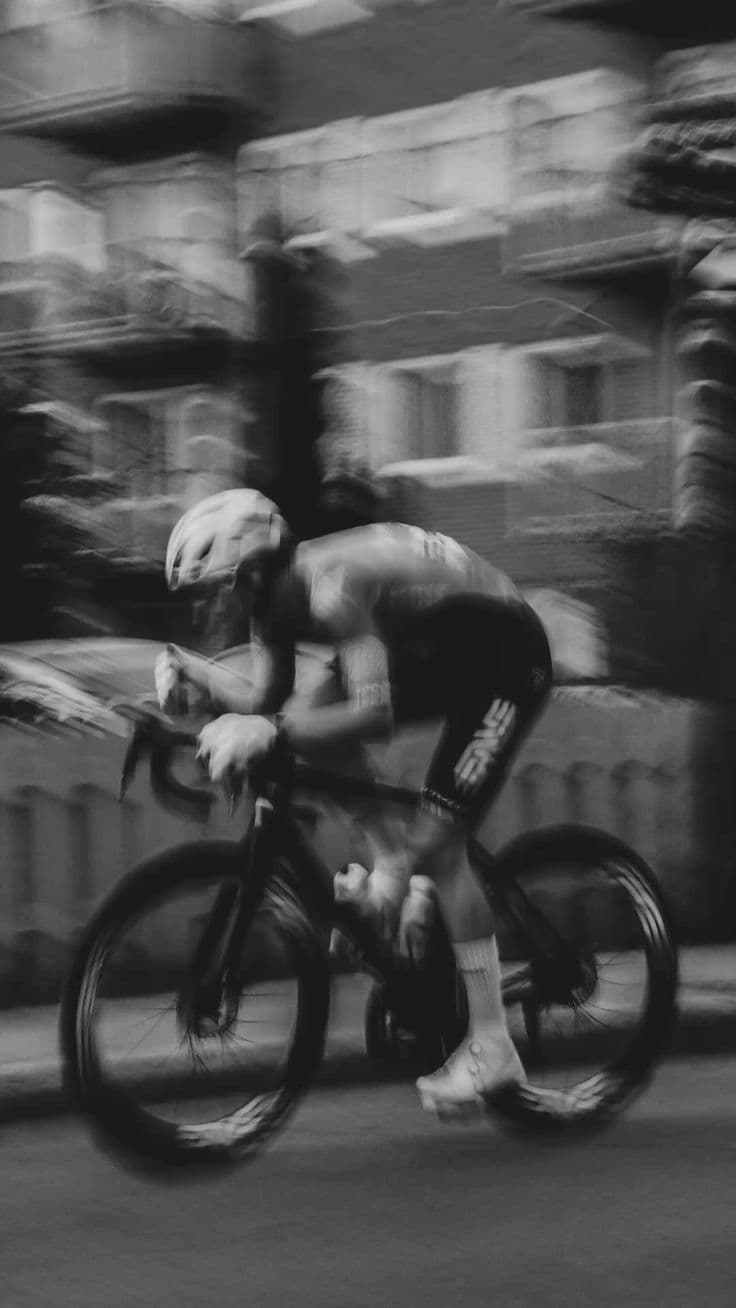The Working Professional's Dilemma
You have career ambitions. You have family commitments. You have a life outside of training. And you want to complete an Ironman 70.3.
Here's the truth: You don't need to train 15-20 hours per week to successfully complete a Half Ironman. With smart, efficient training, most working professionals can prepare for 70.3 miles (1.2 mile swim, 56 mile bike, 13.1 mile run) with 8-12 hours of training per week.
This guide will show you exactly how to do it.
Prerequisites: Are You Ready for 70.3?
Before starting this plan, you should:
- Swim: Be comfortable swimming 500 yards continuously
- Bike: Have ridden 20+ miles at least a few times
- Run: Be able to run 3-4 miles comfortably
- Time commitment: Have 8-12 hours per week for training
- Race timeline: Have 20-24 weeks before race day
If you're not quite there yet, spend 4-8 weeks building your base in each discipline first.
The Philosophy: Quality Over Quantity
Traditional 70.3 training plans were written for professional athletes or people with unlimited time. This plan is different.
We focus on:
✓ High-quality, focused workouts (not junk miles) ✓ Time-efficient interval training (big gains in less time) ✓ Strategic recovery (to prevent burnout) ✓ Flexible scheduling (life happens) ✓ Brick workouts (bike-to-run transitions)
The 20-Week Training Journey
Training for a 70.3 while working full-time is about strategic time management and quality over quantity. Here's how the journey unfolds.
Base Building Phase (Weeks 1-8): Establishing the Habit
You'll start with 6-8 hours of training per week, split across all three disciplines. The goal isn't to crush yourself—it's to build consistency and teach your body to handle multisport training without breaking down.
What this looks like: Two 30-45 minute swims focusing on technique. Two to three bike rides of 45-90 minutes building aerobic base. Two to three runs of 30-45 minutes at easy pace. One complete rest day (non-negotiable).
The reality check: These first weeks are about establishing routine. You're figuring out how to fit training around work, family, and life. You're learning which mornings you can realistically wake up at 5am, where the nearest pool with early hours is, and how to meal prep for the week.
Building without burnout: If you're feeling chronically tired or stressed, you're doing too much. This phase should feel challenging but sustainable. You're building a foundation that will support harder training ahead.
Build Phase (Weeks 9-16): Adding Purpose and Intensity
Training time increases to 8-10 hours per week, and workouts become more purposeful. You'll add interval work to swims, tempo efforts to bikes, and speed work to runs. Most importantly, you'll start doing brick workouts—bike-to-run transitions that simulate race day.
Why bricks matter: The run off the bike feels nothing like a fresh-legged run. Your legs feel heavy, your rhythm is off, and your brain is still in "bike mode." Practicing this transition is crucial. That first time you run 20 minutes after a 90-minute bike, you'll understand why people call them "bricks"—because that's what your legs feel like.
The discipline dilemma: You're getting fitter, which means you're tempted to train more. Resist. The working professional's advantage is training with purpose, not volume. Two quality swim sessions beat three mediocre ones. A focused 60-minute bike with intervals is better than a lazy 90-minute spin.
Managing three sports: Some weeks, one discipline will feel great while another feels terrible. This is normal. Triathlon fitness develops unevenly. Trust the process.
Peak Phase (Weeks 17-18): Race Simulation
Training peaks at 10-12 hours per week with workouts that simulate race day. You'll complete a 3-hour bike ride (most of the 56-mile distance). You'll run 90 minutes. You'll practice a long brick workout: 2 hours on the bike immediately followed by a 45-minute run.
The confidence builder: When you complete that long brick workout—tired, maybe a bit dehydrated, legs heavy—and survive it, something shifts mentally. Race day stops seeming impossible. You've done most of it in training. Now it's just about executing.
Nutrition practice: This phase is when you dial in exactly what you'll eat and drink on race day. You'll learn that gel brands that taste fine normally might make you nauseous on the bike. You'll figure out your stomach prefers liquid calories over solid food. These lessons are invaluable.
Work-life-training balance: These are your hardest weeks. Your weekend long workout might take 4-5 hours. Communicate with family. Batch prep meals. Say no to non-essential commitments. This intensity is temporary.
Taper Phase (Weeks 19-20): The Mental Challenge
Training volume cuts by 50% while maintaining some intensity. You'll feel anxious, guilty about running less, worried you're losing fitness. This is normal and expected.
The taper is science: Your body needs these weeks to fully absorb all the training stress. Muscle damage repairs. Glycogen stores top off. Fatigue dissipates. You'll arrive at the starting line fresh and ready.
What to do instead of training: Sleep 8-9 hours. Eat quality food. Visualize race day. Review your pacing plan. Check your gear. Stay off your feet. Trust that the fitness is there—it's just hidden under fatigue.
Sample Training Week (Build Phase)
Monday: Rest or easy swim (30-40 min technique focus)
Tuesday: Run intervals (10 min warm-up + 6 x 800m at 10K pace + cool-down) - 45 min total
Wednesday: Bike tempo (15 min warm-up + 30 min at race pace + 15 min cool-down) - 60 min total
Thursday: Swim intervals (warm-up + 10 x 100m at race pace + cool-down) - 45 min total
Friday: Easy run (30-40 min conversational pace)
Saturday: Long bike ride (2-2.5 hours, mostly aerobic) + optional 15-min transition run
Sunday: Long run (60-75 min at easy pace)
Total training time: ~8.5 hours
Time-Efficient Training Strategies
Early Morning Sessions
The reality: Most 70.3 training happens between 5:00-7:00 AM.
Make it work:
- Prepare everything the night before (gear, clothes, nutrition)
- Go to bed early (non-negotiable)
- Start with just 2 early sessions per week, build gradually
- Find a training buddy for accountability
Lunch Break Workouts
High-value option: 45-minute run or swim during lunch.
Make it work:
- Scope out showers near your office
- Keep workout clothes/toiletries at work
- Time-box it: 10 min prep, 30-35 min workout, 10 min shower/change
- Eat lunch at your desk after (or while working)
Weekend Warrior Sessions
Long workouts: Saturday/Sunday are for your key bike and run sessions.
Make it work:
- Communicate with family about training time
- Early morning = more family time later
- Make one day family-friendly (bike trainer while kids play)
- Be flexible: swap Saturday/Sunday as needed
Swim Training for Busy Professionals
Swimming is the shortest race segment, but it requires consistent technique work.
Minimum Effective Dose
2 swims per week, 30-45 minutes each, is enough for most age-groupers to successfully complete the 1.2-mile swim.
Focus on Efficiency Over Distance
One 2000-yard quality workout beats three mediocre 1500-yard slogs.
Sample Swim Workouts
Workout 1: Endurance
- 200 warm-up (easy)
- 10 x 100 on 15 sec rest (moderate effort)
- 4 x 50 (hard effort, 20 sec rest)
- 200 cool-down
- Total: 2000 yards in 40 min
Workout 2: Race Pace
- 300 warm-up
- 3 x 400 at race pace (30 sec rest)
- 6 x 50 (build speed each rep)
- 200 cool-down
- Total: 2000 yards in 45 min
Open Water Practice
Critical: Do at least 3-5 open water swims before race day.
- Practice sighting every 6-8 strokes
- Swim without lane lines
- Get comfortable with crowded starts
- Practice in your wetsuit
Bike Training: Build Your Engine
The bike is where you'll spend the most race time (2.5-4 hours). It's also the most time-efficient training.
Indoor vs. Outdoor Training
Indoor trainer workouts (45-60 min):
- Perfect for interval training
- Time-efficient (no traffic, no coasting)
- Can do early morning in garage
- Great for tempo and threshold work
Outdoor rides (2-4 hours):
- Essential for race-specific endurance
- Practice nutrition and pacing
- Build mental endurance
- Handle hills and terrain
Key Bike Workouts
Tempo Intervals (weekday, 60 min):
- 15 min warm-up
- 3 x 12 min at race pace (3 min recovery between)
- 10 min cool-down
Sweet Spot (weekday, 60 min):
- 15 min warm-up
- 3 x 10 min at 88-93% FTP (5 min recovery)
- 10 min cool-down
Long Endurance (weekend, 2.5-3 hours):
- Mostly aerobic pace (65-75% FTP)
- Practice race nutrition (eat/drink every 15-20 min)
- Last 30 min at race pace
Bike-to-Run Bricks
The secret weapon: Practice the transition at least once every 2 weeks.
Sample brick:
- 90-min bike at race pace
- Transition (practice your actual race transition routine)
- 20-30 min run at race pace (your legs will feel like bricks—this is normal!)
Run Training: Protect Your Legs
Running is the final discipline, and it's where many 70.3 athletes struggle. Your legs are tired from the swim and bike.
Running Volume
Goal: 15-25 miles per week at peak (much less than standalone marathon training).
Why less?: The bike provides aerobic conditioning. Your run training focuses on running tired.
Key Run Workouts
Tempo Run (Tuesday):
- 10 min easy warm-up
- 20-30 min at half marathon pace
- 10 min easy cool-down
Long Run (Sunday):
- 60-90 min at easy pace
- Practice race nutrition
- Some runs follow a bike (brick)
Recovery Run (Friday):
- 30-40 min very easy
- Active recovery from week's training
- Conversational pace only
The Fourth Discipline: The Run Off the Bike
Your race-day run will feel nothing like fresh-legged training runs.
Practice this:
- Brick workouts every 2 weeks
- Start run conservatively (slower than race pace)
- First 10 minutes will feel terrible (it gets better!)
- Practice race-day fueling strategy
Nutrition and Hydration Strategy
Daily Nutrition for Training
- Protein: 1.2-1.6g per kg body weight
- Carbs: 4-7g per kg on training days, 3-5g on rest days
- Fats: 1g per kg for hormone health
- Hydrate: Minimum half your body weight in oz of water
Training Nutrition
Swims: Water only (unless over 75 min)
Bikes over 90 min:
- 30-60g carbs per hour (bottle with sports drink + gels)
- 16-24 oz fluid per hour
Runs over 60 min:
- 30-45g carbs per hour (gels or chews)
- 16-20 oz fluid per hour
Race Day Nutrition Plan
Pre-race (3-4 hours before):
- 400-600 calories
- Mostly carbs, moderate protein, low fat/fiber
- Familiar foods only
Swim: Nothing (it's only 30-45 min)
Bike:
- 60-80g carbs per hour
- 20-24 oz fluid per hour
- Mix of sports drink + gels
- Eat/drink every 15 minutes
Run:
- 30-45g carbs per hour
- Aid stations every mile
- Alternate water and sports drink
- One gel every 45 min
Practice this plan on long training days!
Managing Training with a Full-Time Job
Time Management Strategies
Batch prep on Sunday:
- Plan the week's workouts
- Prep training nutrition (portion gels, mix bottles)
- Organize gear for each session
Morning routine efficiency:
- Lay out clothes the night before
- Pre-make breakfast (overnight oats, smoothie prep)
- Set multiple alarms (you'll need them)
Manage energy, not just time:
- Prioritize sleep (7-9 hours non-negotiable)
- Say no to non-essential commitments during peak training
- Communicate with family/partner about your schedule
When Work Gets Crazy
Have a backup plan:
- Miss workout? Do a shorter, harder version
- Missed swim? Add 10 min to next swim
- Bad week? Don't try to "make up" training
Minimum effective training:
- If pressed for time: 1 swim, 2 bikes, 2 runs = still adequate
- Quality over quantity always
- Consistency beats perfection
Recovery for Busy Athletes
You're asking a lot of your body. Recovery is not optional.
Sleep: The Ultimate Performance Enhancer
- 7-9 hours minimum
- Earlier bedtime during peak training
- Naps if possible (even 20 min helps)
Active Recovery
- Easy spin on bike
- Easy swim (technique focus)
- Yoga or stretching
- Walk with family
Nutrition for Recovery
- Post-workout meal within 60 min (carbs + protein)
- Anti-inflammatory foods (berries, fatty fish, greens)
- Adequate protein (for muscle repair)
Listen to Your Body
Red flags requiring rest:
- Elevated resting heart rate
- Persistent fatigue
- Decreased performance
- Illness or injury
When in doubt, take an extra rest day. It's always the right call.
Race Week: Final Preparations
Monday-Thursday
- Easy swim, easy bike, easy run (20-30 min each)
- Finalize race logistics (packet pickup, bike check, timing chip)
- Review race plan
- Start carb-loading (moderate increase, don't overeat)
Friday
- One short bike ride (20-30 min with a few 1-min efforts)
- Check all gear, repair/replace anything questionable
- Transition bags packed
Saturday
- Easy 15-min swim (just to feel the water)
- Easy 20-min bike + 10-min run (keep legs loose)
- Early dinner (familiar foods)
- Lay out all race gear
- Early to bed (you won't sleep great, that's normal)
Sunday - Race Day
- Wake 3-4 hours before start
- Familiar breakfast
- Arrive early for transition setup
- Warm up (easy 5-min jog, maybe short swim)
- Trust your training!
How kovaa Optimizes Your Training
Balancing 70.3 training with a career requires precision and adaptability. kovaa's coaching provides:
- Daily workout adjustments based on recovery, stress, sleep
- Flexible scheduling that adapts when work gets crazy
- Real-time pacing guidance for all three disciplines
- Fatigue monitoring to prevent overtraining and burnout
- Nutrition planning customized to training load
The platform learns your patterns and optimizes training for maximum results in minimum time.
You Can Do This
Completing an Ironman 70.3 while working full-time is challenging. But it's absolutely achievable with smart training, discipline, and the right support system.
Your finish line is waiting. Let's get to work.
Ready for adaptive coaching that adapts to your busy schedule? Download kovaa and train smarter, not longer.
Ready to Start Training?
Explore Adaptive Training Plans
From 5K to Ironman - personalized for your goals
Disclaimer: This content is for informational and educational purposes only. It is not intended as medical advice or a substitute for professional coaching. Consult with a qualified healthcare provider or certified coach before starting any new training program, especially if you have pre-existing health conditions or injuries.



